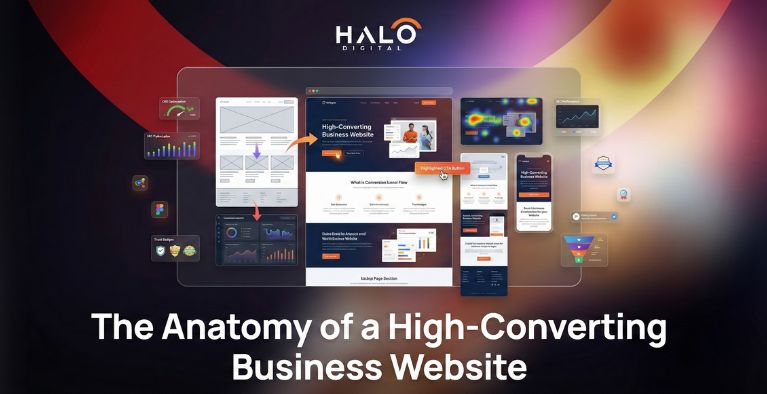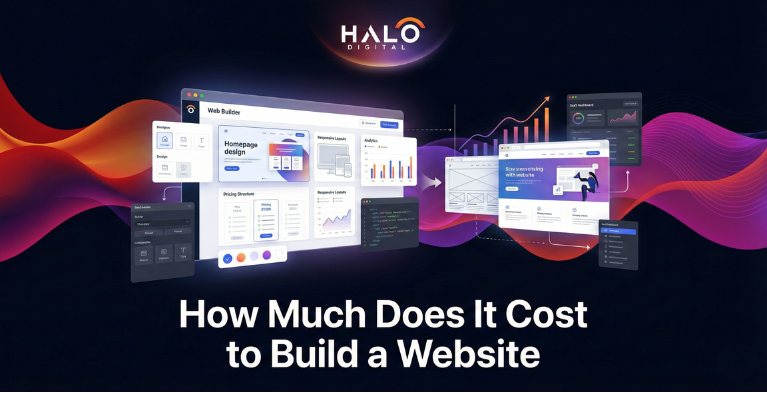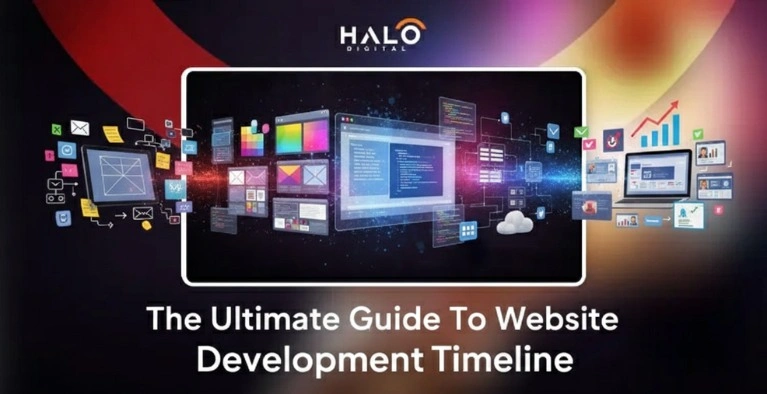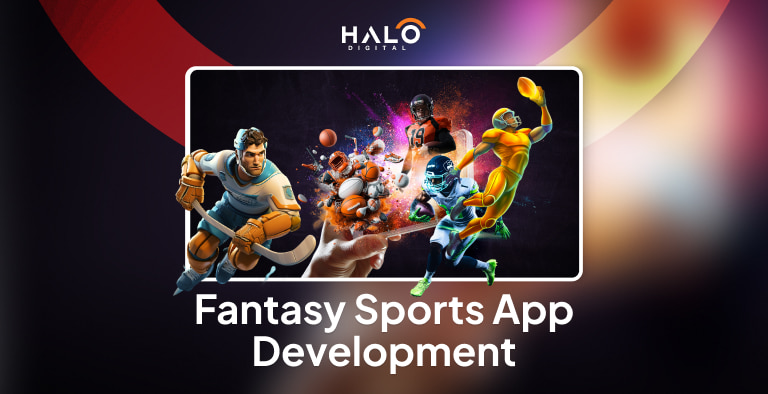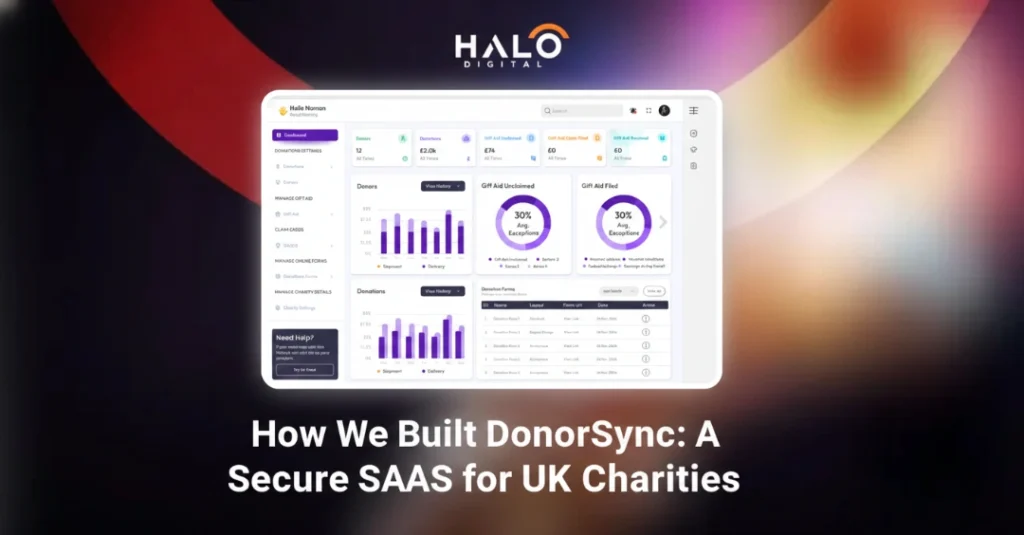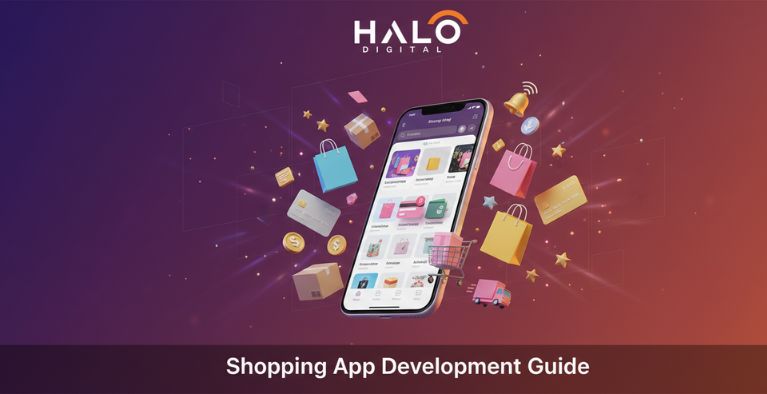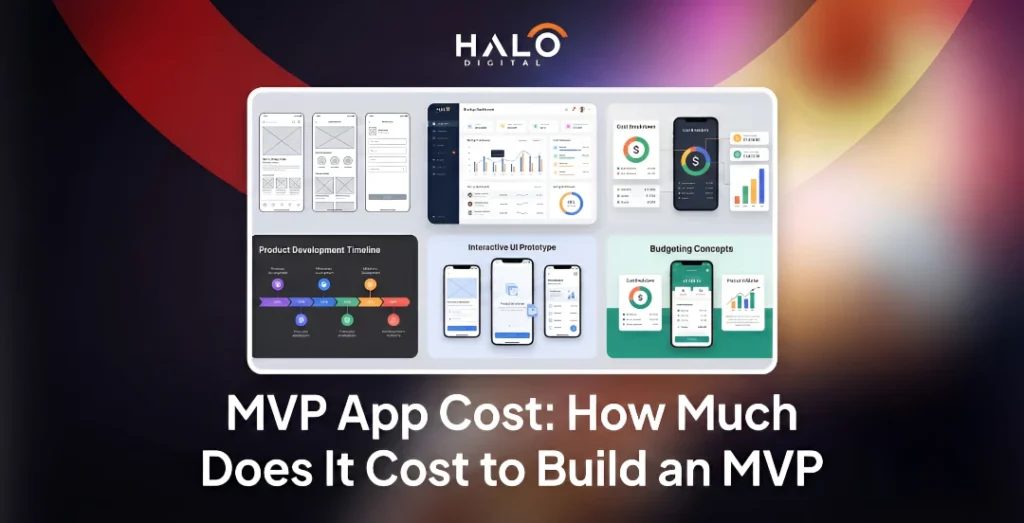Fantasy sports have grown from niche-based platforms for enthusiasts to multi-billion-dollar ecosystems. The market for fantasy sports worldwide is expected to expand by a CAGR of 13.9 percent between 2025 and 2030 and be valued at around $86.3 billion at the end of 2031.
For North America alone, over 60 million players take part in fantasy leagues each season.
The current craze in popularity isn’t only about sports. It’s about engaging entertainment, data-driven interaction, and the thrill of playing with your colleagues. If you’re planning to develop your own app in this field, it’s the perfect moment.
No matter if you’re a startup or a media company or a business owner, fantasy sports app development opens an array of potential for growth of your brand.
In this complete fantasy sports app development guide, we’ll walk through:
- Why apps for fantasy sports are so popular in 2025
- Emerging trends are changing the landscape
- Amazing fantasy app ideas that you can try to launch
- Essential features users expect
- A full fantasy sports app development process
- Technologies stacks, breakdowns of costs and models of monetization
- Legal issues and cases research
Let’s begin.
Why Invest in a Sports or Fantasy App in 2025?
The market for sports tech is undergoing a major digital transformation. With the growing use of smartphones as well as faster 5G networks and a growing demand for real-time and interactive content, fantasy apps are no longer only games. They’re fully fledged platforms for engagement.
Booming Market Size and User Growth
- Within the US alone, the fantasy sports industry had a revenue share of 37% in 2024.
- India has the highest growth rate of market for fantasy games, with over 180 million people using them and a CAGR of over 20%.
- The typical user of fantasy sports spends 3-4 hours a week on these platforms, and they have high retention as well as lifetime value (lifetime worth).
This is why a lot of companies are looking to fantasy sports app developers to create highly customized and scalable solutions that draw and keep their users throughout the different seasons of sports.
Shift in Fan Engagement and Second-Screen Behavior
Modern fans don’t simply watch sports. They are playing alongside them. Fantasy games are taking advantage of the second-screen trend. Players can check their scores, substitute, and chat with friends. All while the game itself is going on.
This means that your app should include:
- Updates in real-time
- Push alerts
- Instant line-up edits
- Forums or chat rooms
More Revenue Opportunities with In-App Models
If you plan and implement it correctly, custom fantasy sports app development will help you create products that are monetizable for free and premium users efficiently. Fantasy apps can generate numerous income streams:
- Paid contests
- Fees for entry
- In-app purchases
- Monthly subscription plans
- Leagues sponsored by sponsors
Here’s an example of how a typical fantasy application generates income:
Revenue Model | Description | Avg. Conversion Rate |
Entry Fees | Participants pay to participate in paid contests | 10%-15% |
In-App Purchases | Coins, boosters or VIP features | 5%-8% |
Subscriptions | Premium statistics and exclusive leagues | 7%-12% |
Advertisements | CPM/CPC derived from banners and video advertisements | Depends on the amount of traffic |
Sponsored Leagues | Brand-partner leagues that offer incentives | ROI-focused |
Latest Trends Shaping the Fantasy Sports App Industry
Fantasy sports app development trends are shifting fast with rising user expectations and tougher competition. Real-time tracking, seamless payments, and social features are now essential. Apps must also support multiple sports, protect user data, and perform reliably during high-traffic events.
Gamification and Reward Loops
Gamified elements create reward loops that keep users coming back for more. Incorporating these elements into your app’s structure in the beginning helps to increase stickiness and LTV.
They should include:
- Daily log-in bonus
- Point systems based on referral
- Achievement badges
- Spin-to-win features
AI & ML for Predictive Analytics and Recommendations
Artificial intelligence is changing the ways that users participate. From suggesting lineups for teams using historical data to offering accurate performance forecasts in real time, AI has become a necessity when it comes to custom fantasy sports app development.
You can also customize your content, predict churn, and improve monetization by machine learning.
AR/VR for Real-Time Stadium-Like Experience
Certain fantasy sports app developers are using AR and VR in order to give the most immersive match-day experience. Imagine your users creating fantasy teams and then sitting in a virtual stadium, with live scores floating over them.
Although they aren’t the most advanced, these features could be promoted as VIP or premium perks, thereby adding an additional layer of monetization.
Blockchain for Transparent Scoring and Rewards
Blockchain boosts credibility and builds trust, especially in areas that are subject to regulatory examination.
If you’re planning to launch an app in those regions, be sure to discuss blockchain with the chosen fantasy sport app development company at an early stage of the planning process.
They will ensure you have secure transactions in-game, no scorecard tampering, and fair prize distribution.
Voice Search and Wearable Integration
Vocal commands have become more natural. The users want to say, “Show me my fantasy score for today’s match,” and see instant results.
Wearables are growing in popularity. The integration of fantasy alerts into smartwatches can boost engagement during live events.
Community Building and Live Social Features
If you’re looking to hire custom fantasy sports app developers, prioritize real-time communications features and modern tools.
The importance of community is paramount. People want to compete; however, they want to network. Top apps include:
- Chat
- Forums
- Reaction emojis during matches
- Trivia and live polling games
Unique Fantasy Sports App Ideas to Launch This Year
With expectations for users increasing, the simple act of offering a traditional fantasy league isn’t enough. Nowadays, the audience is looking for individualization, innovation, and various forms of engagement.
If you’re thinking of entering this field, here are some innovative app ideas that go above and beyond the normal. They’re perfect for tapping into particular areas of interest or niches that aren’t covered.
Fantasy Sports Platform (League-Based & Daily Fantasy)
To make your brand stand out, think about offering niche sports such as Kabaddi, MMA, or even esports. The best fantasy sports app development company can assist you in creating games that are modular to appeal to the needs of both hardcore and casual players.
This is the main model of fantasy games, and with reasons that are valid. There’s still room for creativity:
- League-based games allow players to develop long-term competitions with friends.
- The daily fantasy games (DFS) draw players who want to play for a short time and get fast results.
Live-Streaming of Sports in Real-Time App with commentary
Live streaming of matches can be integrated directly into the app using:
- Commentary from experts or users
- Overlays of real-time stats
- Chatroom discussions for every match
This transforms your app into an entire platform for entertainment and sports rather than simply a fantasy application. Work together with fantasy sports app developers who are able to integrate SDKs for streaming media and create a strong infrastructure for servers.
Sports Event & Ticket Booking App
Let users find local or international sporting events and buy tickets right from your app. The features you can offer include:
- Event listings based on geolocation
- Interactive seat maps
- Price comparisons between different vendors
- Mobile entry using QR codes
Sports Team or Club Management Tool
Fantasy could be an additional feature that allows team members to take part in leagues that are custom-made according to their own personal statistics.
The app is ideal for coaches, amateur clubs, and sports teams. The app will provide:
- Player rosters
- Match schedules
- Tracking performance
- Team announcements
Athlete Performance Tracking App
This format combines the fantasy notion with health information from your personal life with gamified goals as well as rewards.
Designed for fitness-conscious people and athletes. The key features are:
- Track physical stats (speed, distance, calories burned)
- Integrate with wearables such as Fitbit and Apple Watch
- AI-based performance information
- Compare statistics with real athletes
Sports Retail/E-commerce App
Create a fantasy-based e-commerce store by creating a store for merch inside your fantasy app. You can provide exclusive rewards to those who excel, thereby driving sales and gaming. As a starter, you can sell:
- Jerseys
- Collectibles
- Products based on fantasy
- Fan reward boxes
Sports Influencer & Celebrity Engagement App
Create fantasy teams for users inspired by influencer challenges. This creates a celebrity engagement angle that is particularly popular to Gen Z. For instance, you can:
- Participate in leagues that are hosted by celebrities or YouTubers
- Get a signed item or shout-out
- Follow the influencers’ fantasy selections in real time.
Interactive Fitness & Virtual Training App
For trainers of fitness or trainers in sports, the app allows users to:
- Participate in recorded or live training sessions
- Stats on track workouts
- Participate in virtual leagues that are based on your fitness goals
These are only some illustrations of the ways custom fantasy sports app development can be designed around your company’s idea or your niche market.
Key Features Users Expect in a Fantasy Sports App
No matter what idea you decide to adopt, certain features are mandatory to be present by default. These features affect the user experience.
The chosen fantasy sports app development company must ensure these are in place from the beginning.
Here’s a rundown of the most popular features on platforms that have been successful:
Seamless User Registration & Profile Management
First impressions count. A smooth onboarding improves retention and decreases bounce rates. The flow of registration should be:
- Rapid (email or phone number, or social sign-up)
- Secure (OTP or 2FA)
- It is easy to personalize (avatars, bios, favorites teams)
Live Match Updates and Data Feeds
They require integration to licensed providers of sports information such as SportRadar, GoalServe, or CricAPI. Make sure that you fantasy sports app developers can manage live API sync.
Users expect real-time:
- Scores
- Player statistics
- Reports on injuries
- Game status (live, delayed, completed)
Real-Time Points Tracking
Points should be updated in seconds after live events. This ensures that players stay on your game throughout.
Lag is a common issue for users, so make sure you optimize the process early. In order to achieve the above, your backend must:
- Real-time data sync
- Cloud infrastructure that scales
- Low-latency databases
Team Formation & Editing
You should provide filters such as “most selected,” “underdogs,” or “recent form” to help users make better choices. Users must be able to:
- Pick teams quickly
- Swap players before deadlines
- See upcoming games and player rosters
In-App Wallet & Payment Gateways
This is an important goal for fantasy sport app companies because of the risk of real money transactions. Users can be able to:
- Make sure they have enough funds
- Pay out winnings
- Track transactions
Some must-haves for your app include:
- PCI DSS-compliant payment systems
- Local payment service (e.g., UPI, PayPal, Stripe)
- KYC verification to make sure that legal payments are made
Leaderboards, Rewards & Badges
These layers add to the progress and competition. People are awestruck by winning, and they love showing their winnings off.
- Monthly and weekly leaderboards
- Rewards based on rank
- Awards for accomplishments (e.g. 5 consecutive wins)
- Fantasy “trophies” or seasonal accolades
Private Contests and Friends Invites
Create private leagues that are a part of family, friends, or coworkers. This can increase the amount of virality and user-generated content. The features include:
- Invite your friends via code or link
- Custom scoring settings
- Chat in groups
- Shared reward pools
Integrated Chat and Forum Sections
Engagement in the community keeps users engaged. For large apps, consider adding AI moderation tools. Develop features that include:
- Chat rooms for match days
- Discussion threads after matches
- Player performance debates
- Forums for fans moderated by admin
Push Notifications for Game Alerts
High engagement via timely alerts. Make them actionable using deep links in the application. Send out notifications to:
- Contest deadlines
- Injuries to players
- Points Updates
- Reward announcements
Admin Panel for Game Management
Your backend panel is your control room. Make it clear and user-friendly. An efficient admin dashboard will let you:
- Manage contests
- View user data
- Moderate chats
- Approve withdrawals
- Promotions via push
Step-by-Step Fantasy Sports App Development Process
Making a great fantasy sports app is more than just an idea. It requires a clear plan along with a detailed technical plan and continuous improvement.
Here’s a step-by-step fantasy sport app development process:
Market Research & Niche Validation
Before you begin writing code, you should start by doing some research:
- What sports are hot in your area?
- Do you have gaps in the products of your competition?
- Which monetization strategies work best for your specific area of expertise?
Tools such as Google Trends, Statista, and App Annie can be helpful. A reputable fantasy sports app developer will perform SWOT analysis and benchmarking for competitors in this phase.
Feature Planning and Monetization Mapping
Create flowcharts for every feature, using user stories and flowcharts. This ensures that development stays on track and stops expansion of scope.
Next, determine the scope of your application.
- MVP Vs full-featured launch
- Revenue channels (entry fees, advertisements subscriptions, entry fees)
- Custom vs clone app models
UI/UX Wireframing and Prototyping
The most effective fantasy sports app development services try out different design options for team selection and onboarding as well as payments.
Design is more important than you imagine. An intuitive, beautiful interface can increase retention.
- Create wireframes for all the key screens
- Create interactive prototypes (using Figma, Adobe XD)
- Conduct user testing before development begins
Backend Development & API Integrations
This is the technical heart. Your backend must:
- Work with thousands of real-time users in real time.
- Sync with APIs for sports data
- Control your contests and pay securely
- Scale-on-demand for matches
Popular backend languages: Node.js, Python (Django), and Laravel.
Frontend options: Flutter and React Native
Third-Party Data Providers & SDKs
Live scores, fixtures, and player stats are all derived from feeds of data. The top providers are:
- SportRadar
- GoalServe
- CricAPI
- TheSportsDB
Other essential SDKs are:
- Firebase (notifications and analytics)
- Razorpay/Stripe (payments)
- OneSignal (push alerts)
- Agora.io (for live video or voice)
Testing for Performance, Security, and Bugs
The app cannot go live without rigorous testing. The testing process involves:
- Functional testing
- Security audits (for wallets, logins, withdrawals, and login)
- Testing load (simulate the experience of thousands)
- Testing usability (real users using real devices)
Consider investing in automated testing software such as Selenium as well as Appium to speed up the process.
Launch Preparation and App Store Optimization (ASO)
Set up an analytics system to track downloads, sessions, and user behavior after the launch. Before the launch, you should:
- Make promo banners and screenshots of apps
- Write optimized app store descriptions
- Beta test with a select group of users
- Submit your application for the approval of Google Play and Apple App Store
Technology Stack for Building a Scalable Fantasy Sports App
Selecting the right stack will ensure that your application is safe, quick, and easy to expand.
Here’s a top tech stack:
Front-End Technologies (React Native, Flutter)
- React Native is great Data Sync in real time and community features
- Flutter ensures a beautiful UI and one-codebase available on Android and iOS
Backend Technologies (Node.js, Django, Laravel)
- Node.js has high scalability perfect for real-time applications
- Django (Python) It is clean and secure; it is ideal for platforms that rely on data
- Laravel (PHP) ensures rapid development and an efficient ecosystem
Database Solutions (MongoDB, PostgreSQL, Firebase)
- MongoDB Flexible document model to store the user’s logs and information
- PostgreSQL is great for data from structured contexts
- Firebase Realtime DB is ideal for live chats and data streams
Real-Time APIs & Third-Party Sports Feeds
These feeds will provide your app with live scores, stats, match updates, and schedules.
- SportRadar
- GoalServe
- TheSportsDB
- LiveScore API
Cloud Hosting & CDN Solutions
Be sure that the fantasy sports app development company selects a technology stack that matches your objectives for scaling.
- AWS as well as Google Cloud: Scalable cloud infrastructure that has redundancy
- Cloudflare: CDN and DDoS protection
- Firebase Hosting: Excellent for hosting admin panels, or microsites
Cost to Develop a Sports or Fantasy App in 2025
Wondering how much it costs to develop a fantasy app? It depends on multiple factors.
Factors Affecting Development Cost
Cost Driver | Explanation |
Complexity of Features | More advanced features = higher cost |
Design Requirements | Custom UI/UX vs standard design |
Development Location | US/UK-based developers cost more than South Asia or Eastern Europe |
Backend Infrastructure | Real-time servers and data sync increase costs |
Estimated Cost Ranges by App Type
App Type | Estimated Cost (USD) |
Basic Fantasy App | $15,000 – $30,000 |
Mid-Level App with Live Data | $30,000 – $60,000 |
Advanced App with AI/AR | $70,000 – $150,000+ |
For a detailed breakdown, check out our guide on the cost to develop a fantasy sports app.
Fantasy Sports App Monetization Strategies
Your app should not just entertain, it should earn. Here are the most effective fantasy sports app monetization strategies and models:
Entry Fees and Paid Contests
Users pay to join leagues or one-on-one contests. You earn a cut from every entry. This is the most common monetization method used by apps like Dream11 and DraftKings.
In-App Purchases and Subscriptions
Subscription plans can be monthly or seasonal.
- Fantasy boosts
- Detailed analytics
- Premium leagues
Advertising and Sponsorship Integrations
Google AdMob or Facebook Audience Network work well. Just ensure ads don’t interfere with gameplay.
- Banner ads
- Interstitials
- Sponsored contests
Affiliate Marketing or Partner Brand Deals
You earn commissions on every conversion.
- Sports gear
- Betting partners (where legal)
- Streaming services
Premium User Plans and Loyalty Programs
Offer loyalty points, exclusive contests, and cashback for frequent players. Build VIP tiers to reward power users.
Legal, Compliance & Security Considerations
Fantasy sports apps operate in a legally sensitive space. Always consult legal experts.
Regional Licensing & Gambling Laws
- USA: Legal in most states under DFS (Daily Fantasy Sports) laws
- India: Legal in most states, banned in Assam, Sikkim, Nagaland
- UK: Requires a Gambling Commission license if real money is involved
User Data Protection (GDPR, CCPA)
- Encrypt all sensitive data
- Follow opt-in policies for marketing
- Have clear Terms & Conditions and Privacy Policies
Payment Gateway Security
- PCI-DSS compliance
- End-to-end encryption
- Secure KYC/AML checks
Responsible Gaming Guidelines
- Self-exclusion tools
- Daily limits
- Age verification (18+ only)
Case Studies: Top Fantasy Sports Apps and What They Do Right
Dream11
- India’s biggest fantasy sports app
- Focuses on cricket, kabaddi, and football
- Clean UI, great reward system, and deep community engagement
ESPN Fantasy Sports
- Popular in North America
- Offers fantasy for NFL, NBA, and MLB
- Leverages ESPN’s content and analytics to offer premium features
DraftKings & FanDuel
- Known for DFS and sports betting in the US
- Strong brand partnerships
- Advanced analytics, AI-based lineup optimizers
Sleeper and Other Emerging Apps
- Focus on Gen Z
- Offers fantasy, chat, and social leagues
- Fast-growing community and intuitive interface
Scaling, Updates & Post-Launch Optimization
Building the app is only the start. There are many more things that are done afterward, including:
Gathering User Feedback and Feature Requests
Use in-app surveys, app reviews, and analytics to improve.
Performance Monitoring & Crash Analytics
Fix bugs before they impact user retention. You can use tools like Firebase Crashlytics, Sentry, AppDynamics
Expanding to New Sports or Geographies
Start with 1–2 sports and then scale to:
- Esports
- NCAA
- Women’s leagues
- International markets
Regular Feature Updates and Engagement Tactics
Keep your app fresh and users returning by adding:
- New contest types
- Live trivia games
- Fantasy-based video content
FAQs
What is the average time to build a fantasy sports app?
The average time to build a fantasy sports app is between 3 to 6 months, depending on the complexity of the features and the scope of the platform.
Can I launch a fantasy app without legal licensing?
Launching a fantasy app without legal licensing is not recommended. It’s essential to check your regional laws and ensure all licensing requirements are met before going live.
How do fantasy sports apps make money?
Fantasy sports apps make money through multiple revenue streams including entry fees, advertising, subscriptions, in-app purchases, and brand partnerships.
What sports are most popular in fantasy apps?
The most popular sports in fantasy apps are cricket in India, football in Europe, NFL and NBA in the USA, and increasingly, various esports titles.
What are the risks and challenges in fantasy app development?
Key risks and challenges in fantasy app development include ensuring legal compliance, handling real-time data syncing, implementing fraud detection systems, and maintaining long-term user retention.
Conclusion: Fantasy Sports App Development
Fantasy sports are no longer just a game; they’re a business model, a tech product, and a fan engagement tool all rolled into one. If you’re planning to launch your own app in 2025, now is the time to invest in reliable, scalable, and user-centric fantasy sports app development services.
From concept to launch, HALO Digital can help you build the next big player in this space.
Ready to Build a Fantasy Sports App?
Our fantasy sports app development services are designed for startups, sports brands, and entrepreneurs who want a reliable, scalable, and feature-rich platform. Get in touch to start building your app with a trusted mobile application development company.

Arsalan Chauhdary is the CEO and Co-Founder of Halo Digital, a full-spectrum software development agency serving startups and enterprises globally. Over the past 10 years, he has led the architecture and development of platforms used by millions of people across 160+ countries, including DonorSync (GDPR-compliant charity SaaS), Pilgrim (faith-based mobile app with 50K+ users), and enterprise portals for multinational organizations. His work has been referenced by Cloudways and published on Creately. Arsalan Tariq specializes in Laravel, AWS, and building secure, scalable systems for regulated industries including healthcare, finance, and nonprofits. At Halo Digital, he leads a multidisciplinary team focused on delivering products that prioritize security, compliance, and long-term impact.













